Jun
28
2021
 In science it is not only OK to be wrong, it is an unavoidable and perpetual state – depending, of course, on how you define “wrong”. We lack a complete understanding of the universe, and all of our theories are at best approximations of reality. From this perspective no theory is completely correct, and therefore to some extent is at least somewhat wrong. The idea of progress in science it to become less wrong, knowing that perfect knowledge is not technically possible.
In science it is not only OK to be wrong, it is an unavoidable and perpetual state – depending, of course, on how you define “wrong”. We lack a complete understanding of the universe, and all of our theories are at best approximations of reality. From this perspective no theory is completely correct, and therefore to some extent is at least somewhat wrong. The idea of progress in science it to become less wrong, knowing that perfect knowledge is not technically possible.
Progress in science is therefore mostly about identifying what facts and ideas we hold that are wrong, exactly how they are wrong, and how we can gather new data or observations that will test those ideas, allow us to refine them, and become one step less wrong.
Some philosophers express this idea as – there is no metaphysical truth in science. What science has is models that predict how the universe will behave. The more accurate and far reaching those predictions, the better the model is. When these models start to break down, because new observations conflict with their predictions, then we have to revise the model to account for the new observations. In this way we make more and more complex, and/or deep models that can make better and better predictions.
Continue Reading »
Jun
08
2021
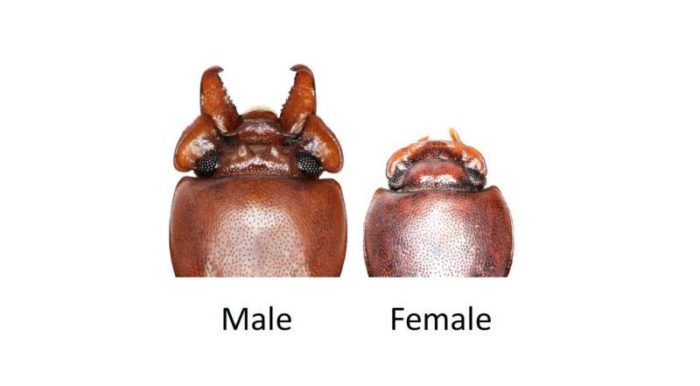 Evolution if one of the most fascinating scientific phenomena because it is so complex and operates over such varying and long timescales. It’s a real challenge to wrap one’s head around. There is therefore a tendency to settle on overly simplistic evolutionary narratives. This is not a criticism, we all do this in an attempt to grapple with evolutionary thinking. The challenge is to recognize this fact, and be open to a deeper, more complex and nuanced understanding of evolutionary processes. It’s a great example of what should be a general intellectual posture – recognize the limits of our current understanding (wherever that may be on the spectrum) and not only be open to, but seek out new information and concepts to keep incrementally pushing our understanding forward.
Evolution if one of the most fascinating scientific phenomena because it is so complex and operates over such varying and long timescales. It’s a real challenge to wrap one’s head around. There is therefore a tendency to settle on overly simplistic evolutionary narratives. This is not a criticism, we all do this in an attempt to grapple with evolutionary thinking. The challenge is to recognize this fact, and be open to a deeper, more complex and nuanced understanding of evolutionary processes. It’s a great example of what should be a general intellectual posture – recognize the limits of our current understanding (wherever that may be on the spectrum) and not only be open to, but seek out new information and concepts to keep incrementally pushing our understanding forward.
In that spirit, here is a study on the evolution of broad-horned flour-beetles that illustrates some of evolution’s complexity. The male broad-horned has exaggeratedly large mandibles, which is uses to compete with other males for mating access to females. This is an example of sexual selection, when a feature specifically increases mating success but is not necessarily broadly adaptable. The go-to example of this is the peacock’s tail feathers – a garish display meant to attract females, but an evolutionary burden in many other aspects. This sets up an evolutionary tug-of-war, where a feature may be advantageous in one respect but disadvantageous in another. Evolutionary processes are fairly efficient at balancing such conflicting forces.
As an aside, the balances tend to be only metastable. They can alter with changes in the environment or behavior. Even different individuals within a species can adopt different survival strategies that result in a different balance of traits. If a population within a species does this it may even eventually lead to a speciation event. For example, it has been documented that within some primate species dominant males will have access to females due to their alpha status, while others gain access by currying favor with the alpha, and still others gain access by gaining favor with the females and sneaking behind the alpha’s back. Still others may act as a “wing man” to a close kin, promoting their genes into the next generation by proxy. The lesson here is – no one strategy captures the wide diversity of behavior even within a single species.
Continue Reading »
Dec
21
2020
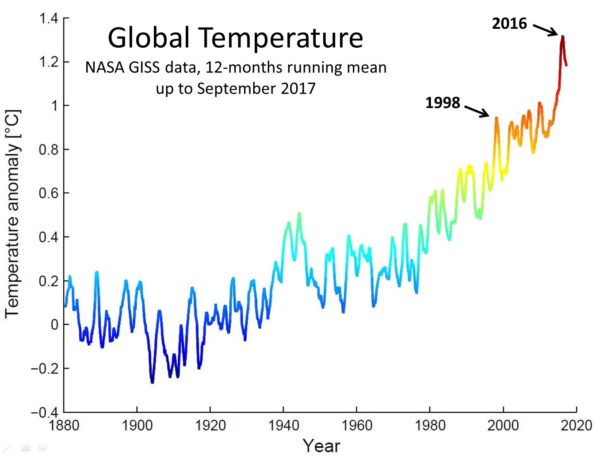 The year 2020 will be either the hottest year on record, or just behind the hottest year, 2016. The top 10 hottest years have all been from 1998 and later, with every year starting at 2013 being in the top 10. 2020 will now knock 1998 off the list, making the 10 warmest years all since 2005. The reason 1998 stuck on the list so long is because it was an outlier El Nino year, a weather pattern that tends to produce warmer weather. Next year, 2021, is likely to be a bit cooler because it is a La Nina weather pattern, which tend to be cooler. What does all this mean for the global warming debate?
The year 2020 will be either the hottest year on record, or just behind the hottest year, 2016. The top 10 hottest years have all been from 1998 and later, with every year starting at 2013 being in the top 10. 2020 will now knock 1998 off the list, making the 10 warmest years all since 2005. The reason 1998 stuck on the list so long is because it was an outlier El Nino year, a weather pattern that tends to produce warmer weather. Next year, 2021, is likely to be a bit cooler because it is a La Nina weather pattern, which tend to be cooler. What does all this mean for the global warming debate?
First, it’s not much of a debate, at least not scientifically. There is a solid scientific consensus that average global temperatures are increasing, and that anthropogenic factors are mostly responsible for this forcing. Don’t believe the nonsense about there not being a consensus or that it is all based on one flawed paper – in fact, there is a consensus about the consensus. The debate is entirely cultural and political, not scientific. The evidence and the consensus are strong enough that any lay person who refuses to accept this scientific consensus is reasonably called a global warming denier.
The denier position is based on a number of logical fallacies and misleading arguments. They attack the very concept of a scientific consensus, and turn the technically true into a misleading point by saying that “science is never settled”. Well…yes, science is always open to revision by new data and new interpretations and theories. But that is not the point, making their argument a straw man. No one is talking about metaphysical certitude, or not being open to revising our climate models or projections with new data. Science, however, does not just exist in the abstract, sometimes we make important decisions based upon the current state of the science. The point is whether or not climate science is confident enough in its projections of global warming to use as a basis for policy. Saying that “science is never settled” is therefore a non sequitur. It is, in fact, a bit of deliberate misdirection.
Continue Reading »
Dec
10
2020
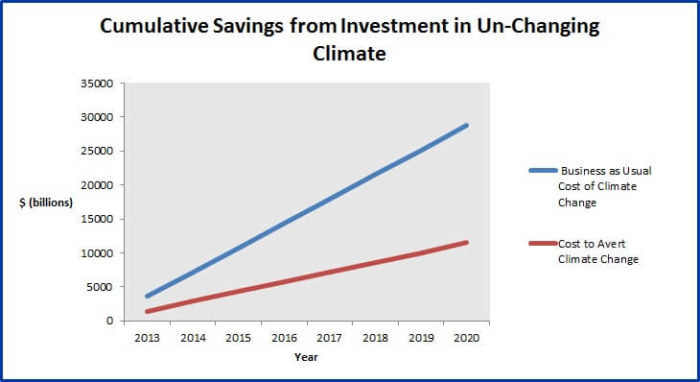 Of course there are many important issues facing the world, but arguably drastically reducing carbon emissions is near the top of the list. The 2020s is likely to be a pivotal decade for this effort, and will have a dramatic and long lasting effect. The reason for this is that we are nearing the end of our “carbon budget” – the cumulative amount of carbon we can release into the environment without causing warming >1.5C above pre-industrial levels. We are very close to exhausting this budget, and in fact most experts have set their sights on 2C as the goal, believing it is already too late to keep global warming below 1.5C. Without a major effort in this decade, we will miss the more liberal 2C target, we will have exhausted our carbon budget, and it will no longer be possible to avoid serious consequences of global warming. In fact, it’s possible it would then be too lake to stop a cascade of events that will eventually lead to 5-6C of warming through triggering threshold positive feedback events. This may take hundreds of years to play out, but it still may be unavoidable at that point.
Of course there are many important issues facing the world, but arguably drastically reducing carbon emissions is near the top of the list. The 2020s is likely to be a pivotal decade for this effort, and will have a dramatic and long lasting effect. The reason for this is that we are nearing the end of our “carbon budget” – the cumulative amount of carbon we can release into the environment without causing warming >1.5C above pre-industrial levels. We are very close to exhausting this budget, and in fact most experts have set their sights on 2C as the goal, believing it is already too late to keep global warming below 1.5C. Without a major effort in this decade, we will miss the more liberal 2C target, we will have exhausted our carbon budget, and it will no longer be possible to avoid serious consequences of global warming. In fact, it’s possible it would then be too lake to stop a cascade of events that will eventually lead to 5-6C of warming through triggering threshold positive feedback events. This may take hundreds of years to play out, but it still may be unavoidable at that point.
This is really the last decade we have to ensure a high probability of avoiding significant global warming by drastically reducing our carbon emissions. This means transforming our energy and transportation sectors into mostly carbon free technology. Industrial emissions will be harder, and require various technological advances, but any such advances there will help as well. This means, at the very least, we have to stop burning fossil fuel. This in turn means electric vehicles (with perhaps some role for hydrogen and biofuel), and an energy infrastructure built on renewable sources (wind, solar, geothermal, hydroelectric) and nuclear with some grid storage. All of this is achievable with current technology, and will reap benefits beyond climate change, such as reduced health care costs and deaths from pollution.
Often, those who push back against the suggestion that we need to make this change to our civilization a priority frame the choice before us as a false dichotomy – the climate vs the economy. More people will be harmed by the economic costs of decarbonization than will benefit from reducing carbon emissions, they claim. Often this strategy is coupled with denial of climate change itself, or unsupported assertions that climate change will not be so bad. They will often point to the most extreme predictions of climate change and argue that the entire field is “alarmist”.
Continue Reading »
Nov
05
2020
 One of the arguments often put forward by global warming deniers is that CO2 is not a pollutant, and in fact higher CO2 is good for crop yield. This point is invoked during their shifting defense – the planet is not warming; well, OK, it’s warming but it’s not due to humans; alright, humans are to blame but this won’t necessarily be a bad thing. See – CO2 is good for plants.
One of the arguments often put forward by global warming deniers is that CO2 is not a pollutant, and in fact higher CO2 is good for crop yield. This point is invoked during their shifting defense – the planet is not warming; well, OK, it’s warming but it’s not due to humans; alright, humans are to blame but this won’t necessarily be a bad thing. See – CO2 is good for plants.
While this core claim is somewhat true, it needs to be put into perspective. First, as a risk vs benefit, raising global CO2, with all the downstream negative effects, is a terrible way to increase crop yield. But a new study looks at 30 years of data to address the underlying premise – what is the net effect of rising CO2 levels on crop production? The short answer is, while some crops increase yield, the overall effect is complicated.
The first distinction we need to make is between C3 and C4 crops, which refers to the type of photosynthesis used. In the C4 pathway some of the energy is used to concentrate CO2 in the chloroplasts, resulting in a higher efficiency of turning light into energy. C4 plants include corn and sugarcane. For these crops there is no benefit in yield from higher CO2 levels. C3 plants do not have this adaptation and they are more dependent on ambient CO2 levels, and they do benefit from higher CO2. But there are some important caveats to this.
What the study showed is that the overall average increase in yield among C3 crops to rising CO2 in the last 30 years is 18% “under non-stress conditions”. That last bit is important because that increase is significantly reduced if there is not enough nitrogen available to take advantage of the higher CO2, which is the case in most of the non-industrialized world. Further, the rising temperature that accompanies the higher CO2 decreases the yield, and also increases loss to pests. Wet conditions, which are also important for yield, reduce the benefit from CO2, however, which is greatest under drought conditions. So overall there has been a modest increase in yield in some crops in industrialized farming where increased nitrogen if available.
Continue Reading »
Oct
19
2020
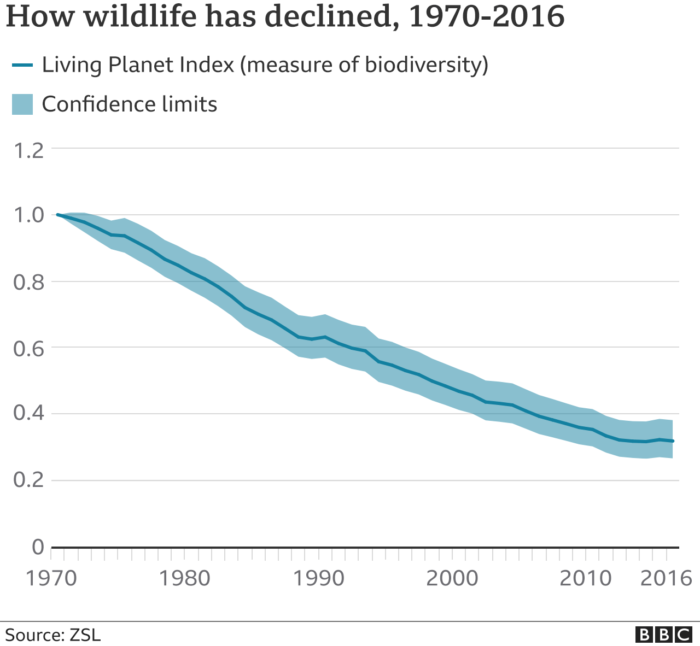 I consider myself a skeptical environmentalist, which is why I was really annoyed by the book by the same name by Bjørn Lomborg. The problem with Lomborg’s book was not the notion of reviewing the science behind the big environmental issues, but rather that he did such a poor job his treatment amounted to denialism, not skepticism. It as so bad, in fact, that Scientific American was motivated to dedicate an entire issue to systematically debunking his claims. This, of course, is part of a larger trend of tainting the word “skeptic” by using it to refer to science deniers and contrarions (and yes, there is a difference and denialism is a thing).
I consider myself a skeptical environmentalist, which is why I was really annoyed by the book by the same name by Bjørn Lomborg. The problem with Lomborg’s book was not the notion of reviewing the science behind the big environmental issues, but rather that he did such a poor job his treatment amounted to denialism, not skepticism. It as so bad, in fact, that Scientific American was motivated to dedicate an entire issue to systematically debunking his claims. This, of course, is part of a larger trend of tainting the word “skeptic” by using it to refer to science deniers and contrarions (and yes, there is a difference and denialism is a thing).
I am an environmentalist in the way that we should all be environmentalists – we should care about the biosphere in which we live. It is literally the only one we have. It is probable that human civilization will never have another, ever. Think about that. Interstellar travel will likely never be practical, and even if we can figure out a way to get to nearby systems, we will not find another Earth. Finding a world that is “earth-like” would require science-fiction level faster-than-light travel which may never be possible, and if it is will not happen anytime soon. Even then, there is a huge difference between “earth-like” and Earth. Terrforming other worlds in our solar system is also very difficult, and will take thousands of years if it is practical at all. So except for far future unpredictable scenarios – this is it. Our efforts are best spent preserving the world that is literally perfect for us, because we evolved here.
Beyond just surviving, I also love nature, perhaps more than the average person. Although people in general have an affinity for nature, and studies show that people are generally happier and healthier when they have exposure to nature. But as human civilization has grown, especially in the las century, we have displaced many natural ecosystems and impacted the environment in such a way as to stress many natural ecosystems. This is a serious issue because of, in a word, biodiversity.
Continue Reading »
Jul
24
2020
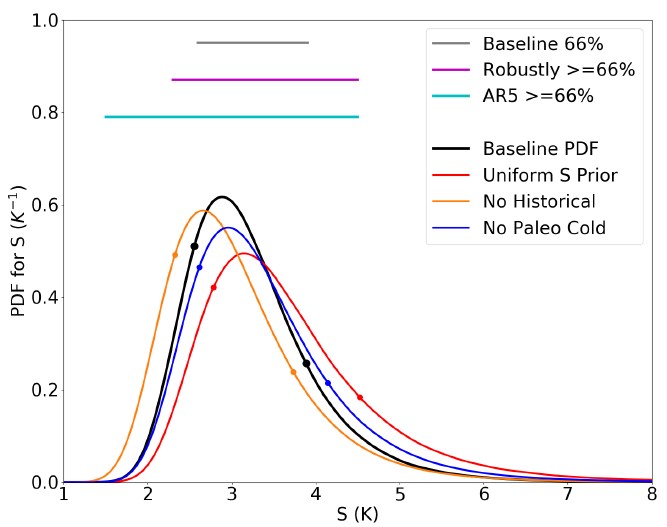 There are various (non-mutually exclusive) ways to deny science. You can cherry pick the data and sources you like – there is always someone on the fringe with an opinion counter to the mainstream. You can use the all-purpose method of invoking a grand conspiracy theory. You can replace scientific opinion with pseudoscience. Or, if you have sufficient background scientific knowledge, you can magnify the uncertainty and disagreements that exist in all theories to make it seem like the core claims are in doubt, when they aren’t.
There are various (non-mutually exclusive) ways to deny science. You can cherry pick the data and sources you like – there is always someone on the fringe with an opinion counter to the mainstream. You can use the all-purpose method of invoking a grand conspiracy theory. You can replace scientific opinion with pseudoscience. Or, if you have sufficient background scientific knowledge, you can magnify the uncertainty and disagreements that exist in all theories to make it seem like the core claims are in doubt, when they aren’t.
One of the primary targets for those who deny climate change and rely on the latter method is to focus on the notion of climate sensitivity. It is clear that CO2 is a greenhouse gas, only the most hard-core conspiracy theorist climate deniers deny that basic fact. Therefore, increasing the amount of CO2 in the atmosphere should increase this warming effect, and warm the planet. There are obviously many more technical layers to the process, including positive and negative feedback loops, other greenhouse gases, reactive gases that amplify the effect, and other factors that influence the climate. But the simple fact that increasing CO2 increases warming is essentially correct and non-controversial among experts.
So if you want to claim that CO2 release from human activity is no problem, you need to argue that the magnitude of the effect is too small to worry about. This is what climate sensitivity is – specifically defined as the amount of warming from pre-industrial levels that would ultimately result from a doubling of CO2 in the atmosphere. If we look at the last million years CO2 level fluctuated from around 200-280 ppm (parts per million). Over the last 100 years this amount has increased steadily, and is now over 410 ppm. How long it will take to double the CO2 depends on what we do, but unless there is a major change to our energy and industry infrastructure, we will get there by the end of the century.
Continue Reading »
Jun
02
2020
A recent interview published in Scientific American is a good case study in what can happen when you have journalism without skepticism. By skepticism I mean a working knowledge of the discipline of scientific skepticism, which combines our current understanding of the philosophy of science, the nature of pseudoscience, critical thinking, mechanisms of self-deception, deliberate deception, and specific knowledge about individual pseudoscientific and paranormal topics.
is a good case study in what can happen when you have journalism without skepticism. By skepticism I mean a working knowledge of the discipline of scientific skepticism, which combines our current understanding of the philosophy of science, the nature of pseudoscience, critical thinking, mechanisms of self-deception, deliberate deception, and specific knowledge about individual pseudoscientific and paranormal topics.
The interview was conducted by John Horgan, who I have trashed in the past for criticizing skepticism while demonstrating an almost complete ignorance of it. The subject of the interview was Leslie Kean, a journalist who has written a book on UFOs and another on life after death. Doing a deep dive into these two issues is beyond this one article, and they have already been covered at length here and elsewhere. I want to focus on what the interview itself reveals.
Kean appears to take a solid journalistic approach to these issues, but there is a massive hole in her approach. She does not seem to be aware that there is already a thorough investigation into these questions, showing convincingly in my opinion that they are not genuine. She ignores it because she thinks she already understands it, when she doesn’t – so she is missing the skeptical take on these issues. She is dismissive of skeptics as deniers and as closed-minded. She then goes on to make rookie mistakes, that any well-informed skeptic could have pointed out to her. The result is a repetition of long debunked fallacious arguments, but with a patina of serious journalism.
Continue Reading »
Apr
23
2020
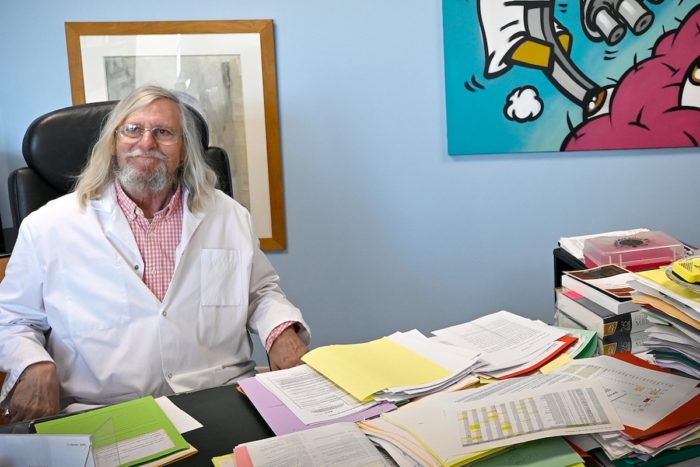 We have been tracking the story of the hype surrounding hydroxychloroquine over at Science-Based Medicine, but there is a brief follow up I wanted to comment on. The short version of the story so far is that one very bad French study claimed to show dramatic reduction in detected virus in those treated. This study, however, was not only preliminary, it was a horrible study, so much so that the results are uninterpretable. The big problem was that it did not count patients who became too sick or died. That is a classic way to make a treatment look better than it is. The author is also a climate change denier who initially mocked China for taking steps to mitigate Covid-19. He does not exactly have street cred within the scientific community.
We have been tracking the story of the hype surrounding hydroxychloroquine over at Science-Based Medicine, but there is a brief follow up I wanted to comment on. The short version of the story so far is that one very bad French study claimed to show dramatic reduction in detected virus in those treated. This study, however, was not only preliminary, it was a horrible study, so much so that the results are uninterpretable. The big problem was that it did not count patients who became too sick or died. That is a classic way to make a treatment look better than it is. The author is also a climate change denier who initially mocked China for taking steps to mitigate Covid-19. He does not exactly have street cred within the scientific community.
But that one horrible study from a sketchy researcher was enough to spark media hype, at least in certain circles, and capture the attention of a president apparently desperate to make this problem go away. Amid the fear of a pandemic, that was a toxic combination. The notion that hydroxychloroquine (with our without the antibiotic, azythromycin) might fight the SARS-Cov2 virus is not implausible. But most things in medicine that are “not implausible” don’t work out. We need high quality clinical science to ultimately tell.
The big question always is – what is the risk vs benefit? Hydroxychloroquine and Azythromycin both have the same potentially deadly side effect, prolonging the QT interval of the heart, which increases the risk for sudden cardiac death. This is a manageable side effect in the right setting, but is potentially serious. This is not a good drug or combination to be taking just on the chance it might help.
Continue Reading »
Mar
17
2020
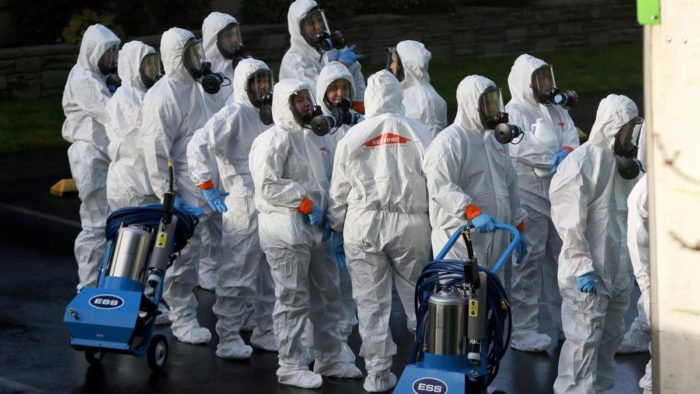 In the past I have written a defense of elitism and expertise, and articles exploring the phenomenon of anti-intellectualism. For those who reject science this is a core issue – they must attack expertise, reject consensus, and defend populism as their justification for promoting the idea that the consensus of scientific opinion is wrong. They do so with the same tired and rejected arguments they have for decades, which I guess is in line with their anti-intellectualism.
In the past I have written a defense of elitism and expertise, and articles exploring the phenomenon of anti-intellectualism. For those who reject science this is a core issue – they must attack expertise, reject consensus, and defend populism as their justification for promoting the idea that the consensus of scientific opinion is wrong. They do so with the same tired and rejected arguments they have for decades, which I guess is in line with their anti-intellectualism.
Recently Michael Egnor, who writes for the anti-science Discovery Institute, and with whom I have tangled before, wrote a stunning defense of anti-intellectualism. He marshaled all the old tropes, which I have already dealt with, but I felt it was especially poignant in the middle of a pandemic. We are actually seeing in real time the consequences of science-denial, of rejecting the advice of experts and basing opinions on your “hunches”, and of approaching reality with a general attitude of anti-expertise populism.
The core of Egnor’s anti-intellectual attack is the notion that – those scientists have been wrong before. First – of course they have. Science is not a crystal ball. It is a set of methods for slowly, painstakingly working out how reality functions. It is full of false hypotheses, dead-ends, mistakes, and occasional brilliance. But mostly it’s careful tedious work, which is then put through the meat-grinder of peer-review. Science is messy, which is why I spend perhaps the majority of my time writing here and on SBM discussing the messiness of science, the pitfalls, the institutional failures, and the changes that many think will help make the institutions of science incrementally better.
Continue Reading »
 In science it is not only OK to be wrong, it is an unavoidable and perpetual state – depending, of course, on how you define “wrong”. We lack a complete understanding of the universe, and all of our theories are at best approximations of reality. From this perspective no theory is completely correct, and therefore to some extent is at least somewhat wrong. The idea of progress in science it to become less wrong, knowing that perfect knowledge is not technically possible.
In science it is not only OK to be wrong, it is an unavoidable and perpetual state – depending, of course, on how you define “wrong”. We lack a complete understanding of the universe, and all of our theories are at best approximations of reality. From this perspective no theory is completely correct, and therefore to some extent is at least somewhat wrong. The idea of progress in science it to become less wrong, knowing that perfect knowledge is not technically possible.
 Evolution if one of the most fascinating scientific phenomena because it is so complex and operates over such varying and long timescales. It’s a real challenge to wrap one’s head around. There is therefore a tendency to settle on overly simplistic evolutionary narratives. This is not a criticism, we all do this in an attempt to grapple with evolutionary thinking. The challenge is to recognize this fact, and be open to a deeper, more complex and nuanced understanding of evolutionary processes. It’s a great example of what should be a general intellectual posture – recognize the limits of our current understanding (wherever that may be on the spectrum) and not only be open to, but seek out new information and concepts to keep incrementally pushing our understanding forward.
Evolution if one of the most fascinating scientific phenomena because it is so complex and operates over such varying and long timescales. It’s a real challenge to wrap one’s head around. There is therefore a tendency to settle on overly simplistic evolutionary narratives. This is not a criticism, we all do this in an attempt to grapple with evolutionary thinking. The challenge is to recognize this fact, and be open to a deeper, more complex and nuanced understanding of evolutionary processes. It’s a great example of what should be a general intellectual posture – recognize the limits of our current understanding (wherever that may be on the spectrum) and not only be open to, but seek out new information and concepts to keep incrementally pushing our understanding forward. The year 2020 will be either the
The year 2020 will be either the  Of course there are many important issues facing the world, but arguably drastically reducing carbon emissions is near the top of the list. The 2020s is likely to be a pivotal decade for this effort, and will have a dramatic and long lasting effect. The reason for this is that we are nearing the end of our
Of course there are many important issues facing the world, but arguably drastically reducing carbon emissions is near the top of the list. The 2020s is likely to be a pivotal decade for this effort, and will have a dramatic and long lasting effect. The reason for this is that we are nearing the end of our  One of the arguments often put forward by global warming deniers is that CO2 is not a pollutant, and in fact higher CO2 is good for crop yield. This point is invoked during their shifting defense – the planet is not warming; well, OK, it’s warming but it’s not due to humans; alright, humans are to blame but this won’t necessarily be a bad thing. See – CO2 is good for plants.
One of the arguments often put forward by global warming deniers is that CO2 is not a pollutant, and in fact higher CO2 is good for crop yield. This point is invoked during their shifting defense – the planet is not warming; well, OK, it’s warming but it’s not due to humans; alright, humans are to blame but this won’t necessarily be a bad thing. See – CO2 is good for plants. I consider myself a skeptical environmentalist, which is why I was really annoyed by the book by the same name by Bjørn Lomborg. The problem with Lomborg’s book was not the notion of reviewing the science behind the big environmental issues, but rather that he did such a poor job his treatment amounted to denialism, not skepticism. It as so bad, in fact,
I consider myself a skeptical environmentalist, which is why I was really annoyed by the book by the same name by Bjørn Lomborg. The problem with Lomborg’s book was not the notion of reviewing the science behind the big environmental issues, but rather that he did such a poor job his treatment amounted to denialism, not skepticism. It as so bad, in fact,  There are various (non-mutually exclusive)
There are various (non-mutually exclusive) 
 We have been
We have been  In the past I have written
In the past I have written 




